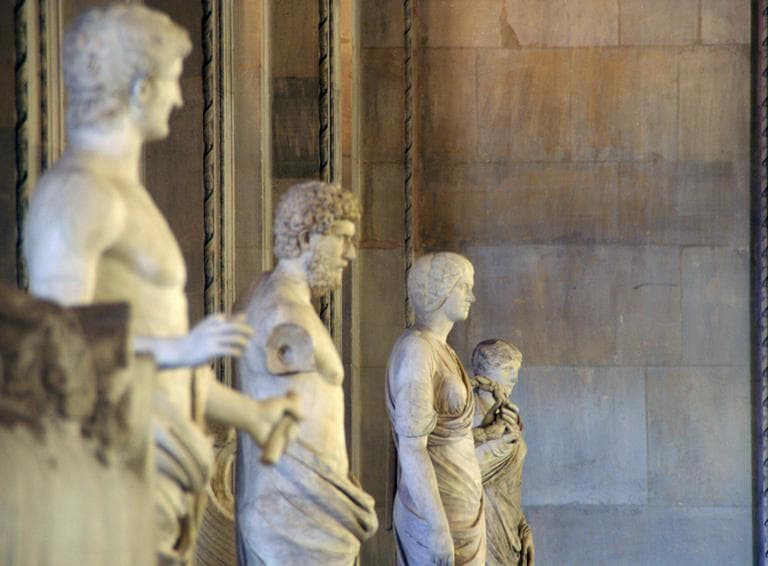Advertisement
'The Swerve:' The Modernization Of The World
Resume
Our story begins about 600 years ago in the winter of 1417, to be precise. Our hero is an unassuming man who works for the Pope as a secretary and scribe.
He has a passion for books. In particular, old books — ancient pagan Roman manuscripts.
Our hero has a great name: Poggio Bracciolini. Bracciolini is a Florentine whose quest for those ancient manuscripts leads him to an old Monastery in Germany. There, totally by chance, he unearths an ancient, epic poem written by the Roman Philosopher, Lucretius, in 50 BC. It's called "On The Nature Of Things."
It's not exactly a sexy title, but it contains some thrilling and explosively controversial ideas. Among them: there is no creator and grand plan; we are all made of minute particles — like atoms — the very same matter as the stars and oceans; there's no after-life, and we should live not in fear of the gods, but in pursuit of pleasure.
Keep in mind, this was written in 50 BC. It was the literary discovery of Poggio Bracciolini's life. And according to Harvard scholar Stephen Greenblatt, it would shape the course of human thought and influence the world's greatest thinkers, from Galileo to Einstein.
Guest:
- Stephen Greenblatt, John Cogan University Professor of the Humanities, Harvard University; author, "The Swerve: How The World Became Modern"
More:
- Excerpt: The Swerve (PDF)
Excerpt reprinted from "The Swerve: How the World Became Modern" by Stephen Greenblatt © 2011 by Stephen Greenblatt. Used with permission of the publisher, W.W. Norton & Company, Inc. You can find the book on Amazon.
This segment aired on October 4, 2011.